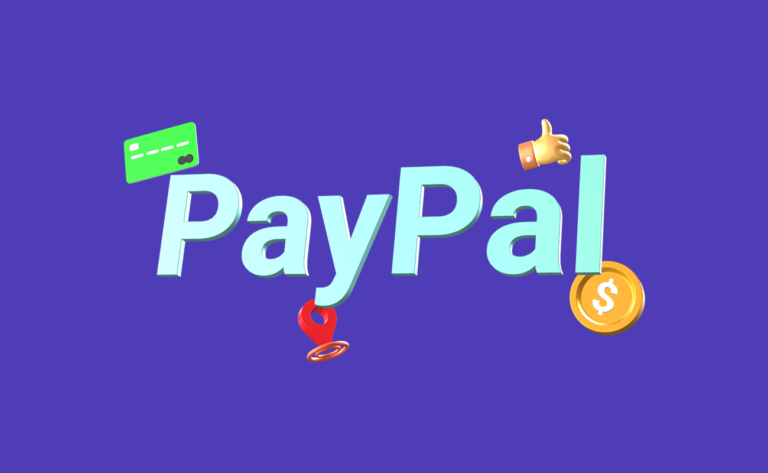Millions of users use PayPal every day to regulate business payments, pay bills, and make personal payments, both locally and internationally.
But, is it still the best money transfer service now that the likes of Wise, Payoneer, and Instarem entered the scene, with their low-fee transfers and quick transfer speeds?
This PayPal review outlines PayPal’s strengths, weaknesses, fees, real customer reviews, and alternatives to consider. By the end, you’ll have a better idea about whether it’s the right choice for you for personal or business payments.
What is PayPal and How is it Different?
PayPal is a leading payment processing company that provides fast and secure payment transfers. It uses advanced encryption to secure your financial information and prevent your sensitive details from being shared or stolen.
Many online vendors accept PayPal as a payment option which makes it incredibly easy to buy goods and services.
The Buyer and Seller Protection Programme available with PayPal is one of its main benefits. This program enables buyers to receive a full refund if the service or goods aren’t delivered.
To benefit from this system, users must have kept their accounts in good standing and initiate a dispute within 180 days of the original purchase.
In addition to one-time purchases, PayPal’s app can be used to make recurring payments, like monthly bills and subscriptions.
Pros and Cons of PayPal
Pros:
- It can easily be integrated with shopping carts and business tools.
- Free online transactions for businesses.
- Secure and fast transactions.
- Accepts multiple payment methods (debit cards, credit cards, and bank accounts).
- It has an easy-to-use app that can be downloaded on Android and Apple devices.
- It lets you invest in cryptocurrency.
- You can set up recurring payments.
Cons:
- Strict rules regarding account freezing.
- Higher transaction fees than some of its competitors.
- High chargeback fee for merchants.
- Not available in over 28 countries, including Bangladesh, Afghanistan, North Korea, and more.
Who is PayPal For?
PayPal is for people that prefer keeping their bank information private from the businesses or individuals they are paying. The payment service can easily be integrated with shopping carts and accepts multiple payment methods.
You can pay using your debit card, credit card, or bank account. Moreover, you can pay with your PayPal balance, Paypal Credit, and rewards balance.
PayPal doesn’t charge extra fees if you pay from your bank account or PayPal balance. On the downside, you will be charged a fixed and additional fee if you make personal payments through your cards.
The company lets you invest in crypto at the expense of a fee corresponding to your purchased or sold crypto amount.
PayPal’s worldwide established name works wonders for business owners because many people trust the company. On the other hand, if you open a merchant account, you’ll have to bear expensive monthly and chargeback fees.
Due to PayPal’s strict regulations, if the company finds you making or receiving an unusual transaction, it can freeze your accounts. Their customer service is operational throughout the week but some users are disappointed with the available support.
How Does PayPal Work?
PayPal is an intermediary that uses your bank account, credit card, or debit card to make payments while keeping your financial details safe. You can make the app your default payment method online instead of a debit or credit card.
To use PayPal’s services, you’re required to set up a free account which can be done by following the steps below:
- Click the “Sign Up” option on PayPal’s website. You’ll be asked to choose whether you want a business or personal account.
- Next, you’ll be asked to fill in your personal information to set up a profile, including your ID.
- After verifying your email address, you can link your bank account to PayPal by giving them the required details. This will include your account number, bank name, code, branch code, etc.
- PayPal will verify your profile and send you a confirmation email.
After you’ve set up an account, you’ll be able to send and receive money. If the recipient has a PayPal account, all you’ll have to do is enter their email address to send payments.
For making instant payments anytime, anywhere, you can download the PayPal app and even set up recurring payments.
Is PayPal Safe and Legit?
PayPal ensures the security of your personal information and transactions through data encryption. The company ensures well-established Transport Layer Security (TLS) connections to prevent imposter interceptions. PayPal also ensures that all your connections are HTTPS secured.
Every time you log in to your PayPal account, you’ll be given a unique One-Time PIN (OTP) to input for additional security. The company sends prompt notifications regarding every transaction so you can keep up to date with all of your payments. PayPal also monitors your account through advanced technology to detect fraud.
PayPal meets the Payment Card Industry Data Security Standard (PCI-DSS) and holds certifications for many programs and standards. The company is also licensed by the New York State Department of Financial Services as a Money Transmitter and a BitLicense.
What are PayPal’s Fees (for U.S. customers)
PayPal offers free online payments to local businesses. Personal local transactions made through your bank are also free. If you make the payment with a card, you’ll be charged 2.90% of the total amount being transferred and a fixed fee, depending on the currency payment is made.
If you choose to invest in cryptocurrency, there are different charges depending on the amount of crypto you sell or purchase.
Receiving personal transactions from a local account is free of charge. However, a fixed rate will be charged based on the received currency type if the received payment is in a foreign currency.
What Are PayPal’s International Fees
For sending international personal payments, Paypal charges the applicable fee for domestic transactions with the addition of a percentage-based international transaction fee. This fee is 5% of the payment made.
The minimum international fee is 0.99 USD, while the maximum is 4.99 USD. However, if you fund transfers with a debit/credit card or PayPal credit, you’ll be charged a fee of 2.9% as well as a fixed fee. This fixed fee is dependent on the currency being used.
See Paypal International Fees.
PayPal’s Customer Reviews
PayPal has a 4.3-star rating on the Google play store and a 4.8-star rating on the Apple store. However, its Trustpilot ratings are much lower at 1.3/5 with over 24,000 reviews.
Individuals and business owners expressed concerns related to PayPal holding payments. They also mentioned that the customer support team wasn’t as helpful as they had hoped.
Other users found that they didn’t qualify for the Buyer and Seller Protection Programme which they found frustrating. In addition to this, PayPal’s increased fees have caused many users to look for cheaper alternatives.
Less than 10% of Trustpilot reviewers rate PayPal’s services five stars. These users mentioned that PayPal made it easy to transfer money internationally. They also found that PayPal helped them to receive refunds quickly.
PayPal Alternatives
If you think PayPal just isn’t for you, here are some popular alternatives:
Wise – a trusted money transfer service operating in 77 countries, stands out with its peer-to-peer model, mid-market exchange rates, low fees, transparent pricing, and multi-currency accounts. It offers a user-friendly mobile app and is a cost-effective alternative to PayPal for international transfers.
Revolut – a digital banking app with money transfer features that offers global currency conversions, budgeting features, and a specialized account for children. Compared to PayPal, Revolut has a user-friendly app and offers inter-bank exchange rates, but has limited customer support options.
Skrill – This is great for users who want something as secure as PayPal but more favorable to business owners. The company offers multicurrency accounts, chargeback protections, and multilingual customer service.
Payoneer – A popular service among business owners and freelancers who don’t have access to PayPal in their countries. The company sets up local currency accounts and is available in over 200 countries.
See articles: Wise Vs PayPal, Cash App Vs PayPal, and Payoneer Alternatives.
Verdict
If you’re looking for a trustworthy and globally recognized online payment service, PayPal is worth considering. However, you may incur high fees when transferring money internationally.
Personal accounts provide more benefits than business accounts. This is mainly because of the high charges for business accounts, especially if the business frequently deals with international payments.
PayPal’s strength lies in the recognizable brand name that it has established over the years. People don’t want to take risks when it comes to money, and PayPal delivers with its protection programs.
FAQs
Does PayPal charge a fee to send money?
Whilst PayPal doesn’t charge an extra fee for local personal transfers made through your bank, it will charge you for card payments. Paying in local stores and online shops is also free.
However, international payments of any kind are charged with additional fees due to the currency conversion involved.
Check out PayPal’s website for more information regarding their rates.
Does PayPal work internationally?
Yes, PayPal offers its services in over 200 countries and supports 25 currencies. International transfers are accompanied by international transaction and currency conversion fees.
Why is PayPal charging me a fee to receive money?
When you receive a personal transaction in a foreign currency, PayPal processes it into the local currency. This processing is charged to the recipient as a conversion fee.
How to receive money on PayPal?
Simply provide the sender with the email address linked to your PayPal account. Alternatively, you can provide senders with your unique PayPal link. This can be sent to anyone via your mobile or desktop.
You’ll be notified through email or text if any payment is made to your PayPal account. You can then access the money and choose to deposit it in your bank or keep it in your PayPal balance.
Can you use PayPal everywhere?
No. There are around 28 countries where PayPal doesn’t work.
Sources
- https://www.paypal.com/us/brc/article/understanding-account-limitations
- https://www.paypal.com/us/cshelp/article/is-paypal-safe–help321
- https://www.paypal.com/us/webapps/mpp/paypal-fees
- https://www.paypal.com/en/webapps/mpp/country-worldwide
- https://www.paypal.com/us/security/learn-about-paypal-secure-technology




